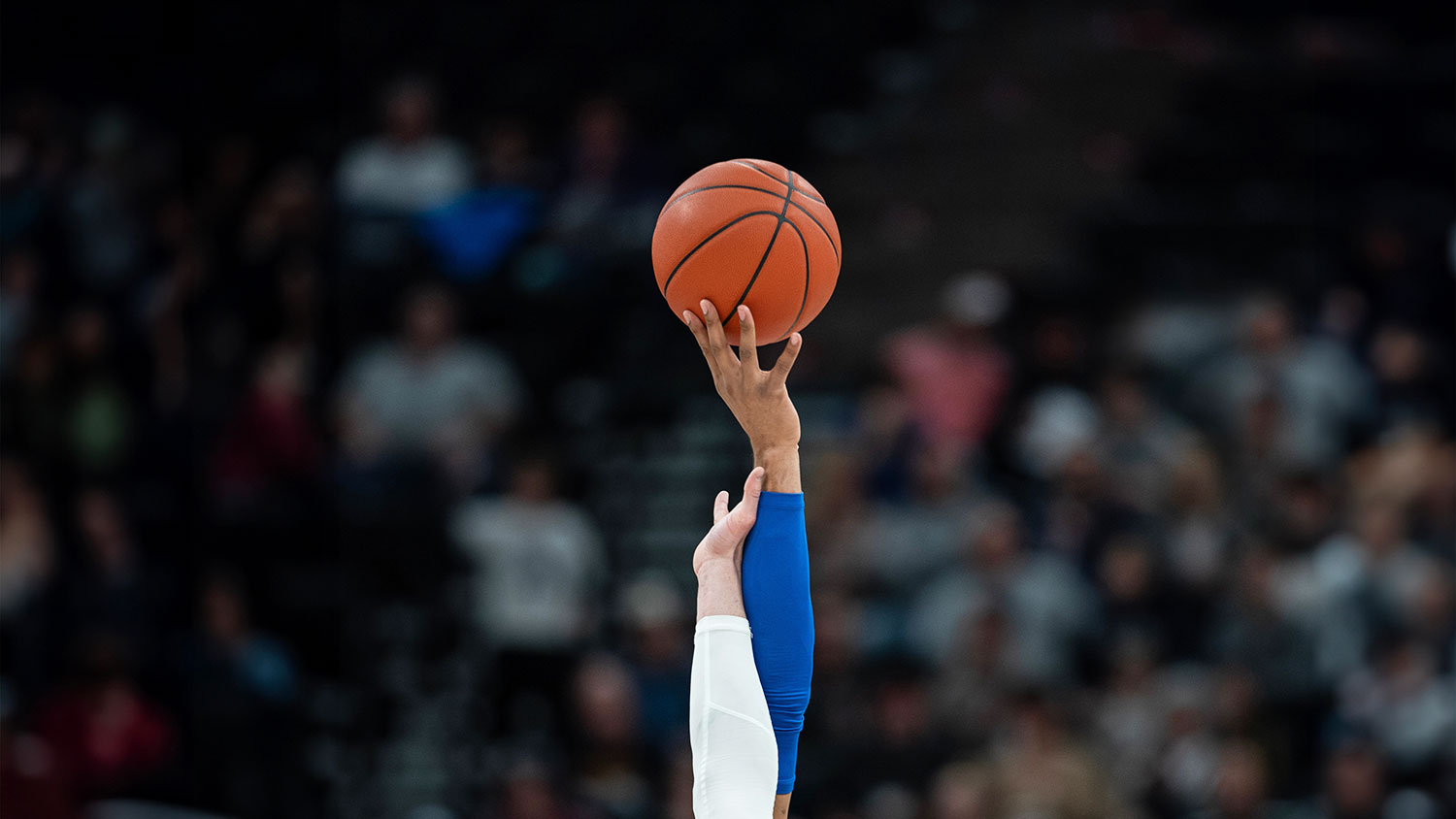Should North Carolina Exempt NIL Income From Income Tax?
Poole College experts Nathan Goldman and Christina Lewellen examine the pros and cons.

This year’s college basketball championship game between the University of Houston and the University of Florida featured two one-seeds. However, one other commonality is that both teams are located in states with no income tax on individuals. As income from Name, Image, and Likeness (NIL) is generally subject to taxation, these two schools receive tax benefits at the state level for athletes that may impact their teams positively when recruiting elite college talent.
When the dust settled at the end of this year’s March Madness, the University of Florida was centered on the court with confetti raining down. Regardless of which team won, an important factor may have been at play: income taxes. Neither Texas nor Florida levies a tax on income, meaning that players who play for the University of Houston and the University of Florida pay zero state income taxes on their NIL income.
Like any other income, income received from NIL is subject to taxation at both the federal and state levels. For an athlete like Arch Manning, who has a $6.5 million annual NIL valuation, this NIL income would generally lead to millions of dollars owed at the federal level and hundreds of thousands owed at the state level. However, Manning plays college football for the University of Texas, and Texas does not tax income. This notion leaves Manning with a significantly smaller tax bill than if he were to play football at a school in a state that levies an income tax.
Manning chose to play football at the University of Texas over the University of Alabama and the University of Georgia. Coincidentally, both Alabama and Georgia are two states that have nontrivial income tax rates (both around 5% as of 2025), leading athletes to effectively receive less take-home money from the same NIL deal than if they committed to a school in a no-income-tax state (like Texas or Florida). However, both Alabama and Georgia have also recently proposed legislation to exempt NIL income from taxation at the state level, which could help level the playing field for elite college athletes in terms of after-tax pay.
As college basketball teams enter the height of the transfer portal activity, and as teams like NC State, UNC, Duke and Wake Forest look to be as competitive as possible when recruiting players, one may question whether North Carolina should also be exempting NIL income from taxation.
In 2025, individuals in North Carolina will pay a flat 4.50% tax rate on taxable income. This means that if a person has $100,000 of taxable income, they will pay $4,500 to the state of North Carolina in income taxes in addition to whatever they pay to the United States at the federal level. If we assume that college athletes in North Carolina receive $200 million in total NIL money across all colleges and all sports (a likely high figure with UNC football having a $20 million NIL budget), this means that North Carolina will receive $9 million in income taxes due to NIL.
Perhaps North Carolina should tax this income because these individuals provide a service and are rewarded (often handsomely for it) in the form of a monetary payment. North Carolina is grappling with financial uncertainty and cash flow downturns, and these funds can help the state fund their government.
On the other hand, these funds are not substantial and will not materially impact the North Carolina state budget. If NIL income was exempt from income taxation, North Carolina could view the $9 million in tax revenues not collected as an investment in their state’s athletic programs. For example, if NC State football were to make a prominent bowl game or make a deep run in the NCAA tournament, the benefits the university receives from the TV time and publicity may outweigh that of which would have been otherwise paid by the athletes in tax revenues for NIL. This was seen most recently from Florida Atlantic University’s surprise trip to the Final Four in 2023. If these schools can recruit better athletes, then exempting income from taxation may be an investment that pays dividends to North Carolina schools and, consequently, the state of North Carolina.
Despite some of the benefits, more take-home NIL does not guarantee success. Duke University narrowly lost to the University of Houston in this year’s college basketball Final Four despite Duke having significantly more NIL money invested in its players than Houston. On the gridiron, the University of Texas lost to the Ohio State University in the college football semifinals despite the state of Ohio levying a 3.5% tax on income.
There could be downsides to exempting NIL from state tax. First, income taxes are usually not a first-order consideration as to why a player selects one school versus another, so there’s no guarantee that making NIL tax-free would impact a student’s university choice. Second, from an equity perspective, states will likely struggle to explain to their taxpayers why wealthy college students who are supposed to be student-athletes receive substantial tax benefits while other hard-working individuals who make far less money must pay taxes on their income.
Despite some of the drawbacks, to the extent that taxes have a non-zero impact on an athlete’s decision on where to play college sports, and given that other states are starting to exempt NIL from state taxes, it seems like a fruitful path for North Carolina to follow suit of nearby states and exempt NIL income from taxation to at least not put the state at a tax disadvantage for recruiting elite college athletes.
Nathan Goldman and Christina Lewellen are associate professors of accounting in the Poole College of Management.
This post was originally published in Poole Thought Leadership.
- Categories:


